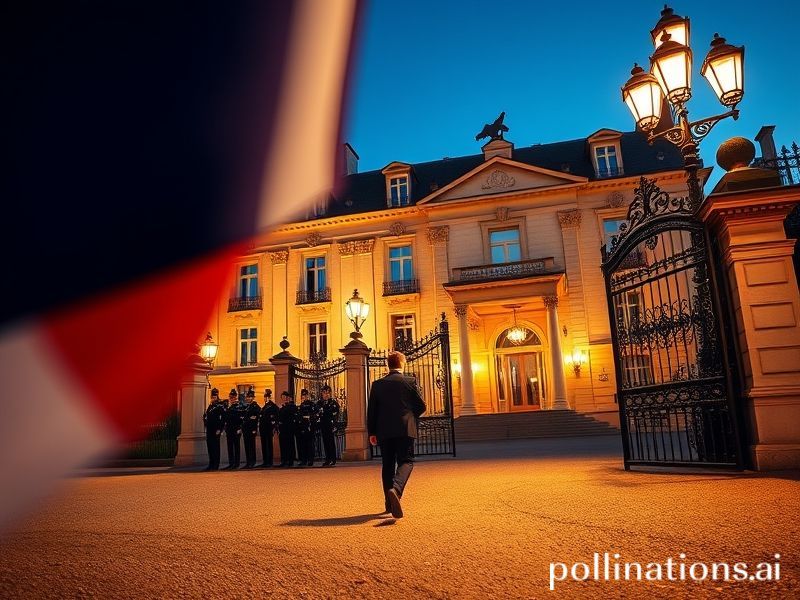France’s Pension Revolt: A Global Masterclass in How to Argue Over Who Pays for Dinner
PARIS—From the banks of the Seine, the French government is once again demonstrating its uncanny knack for turning political theater into high art—think Molière with spreadsheets, or Racine rewritten by accountants who’ve read too much Kafka. While the rest of the planet debates whether democracy is dying of natural causes or being actively smothered with a pillow, France has opted for the avant-garde approach: performative CPR on a body that keeps insisting it prefers the stretcher.
The current administration, a fragile centrist coalition held together by notarized promises and the faint hope that Brussels will keep the espresso coming, is trying to reform pensions at a time when most of the world has quietly given up on the entire concept of retirement. (Silicon Valley’s retirement plan—“die before 45, preferably on a yacht”—remains popular.) Emmanuel Macron, once the wunderkind who sold France as a start-up nation, now resembles a harried maître d’ apologizing for a soufflé that has just collapsed into existential goo. His approval ratings hover somewhere between “tax audit” and “wet socks,” yet he persists, propelled by the uniquely Gallic conviction that if the music is loud enough, no one will notice the ship is listing.
Internationally, the spectacle is binge-worthy. Washington, perennially allergic to nuance, watches with the same detached fascination it reserves for British royal funerals: “Look, honey, Europeans are upset about something again.” Beijing, ever pragmatic, quietly buys another tranche of French utility bonds and files the footage under “evidence that liberal democracies can’t even agree on lunch.” Meanwhile, Berlin—France’s on-again, off-again Teutonic roommate—offers unsolicited advice on fiscal discipline like a neighbor who borrows your lawnmower and returns it with a PowerPoint on proper blade maintenance.
The global significance lies less in the minutiae of retirement age—63, 64, the difference is roughly one extra season of Emily in Paris—and more in what the fracas reveals about the post-pandemic social contract. From Jakarta to Johannesburg, governments are discovering that citizens who spent two years learning to bake sourdough and question the very concept of commuting are suddenly allergic to being told to work longer. France, never shy about taking to the streets, has become the world’s laboratory for testing just how much pepper spray a liberal democracy can deploy before it forfeits the “liberal” part.
Investors, those eternal romantics, pretend to be appalled by the strikes paralyzing refineries and rail lines, then quietly buy the dip because French bonds still offer the kind of yield you can’t get in Tokyo without mortgaging your grandchildren. The euro wobbles, crypto evangelists pop champagne, and somewhere in London a hedge-fund algorithm learns the word “baguette.”
And yet, amid the tear gas and the chansons, there is a darker punchline. The French government, for all its operatic dysfunction, is still one of the few places on Earth attempting structural reform without suspending elections or rewriting the constitution on a napkin. That may sound like faint praise—congratulations, you managed not to become Hungary—but in 2023 the bar is subterranean. France’s tantrums are messy, expensive, and occasionally set Citroëns on fire, but they are also proof that the machinery of dissent still cranks. Compare that to countries where protest is merely a metadata tag for sentencing algorithms.
So when the smoke finally clears—probably around the same time Paris hosts the Olympics and discovers the Seine is 30% champagne corks—Macron will either emerge as the reluctant de Gaulle of late-stage capitalism or be replaced by someone even more convinced that spreadsheets are a personality. Either way, the planet will keep spinning, pensionless millennials will keep doom-scrolling, and the French government will return to its historical role: reminding humanity that civilization is just a long, elaborate argument about who pays for dinner. Until the check arrives, pass the wine; the show is far from over.







